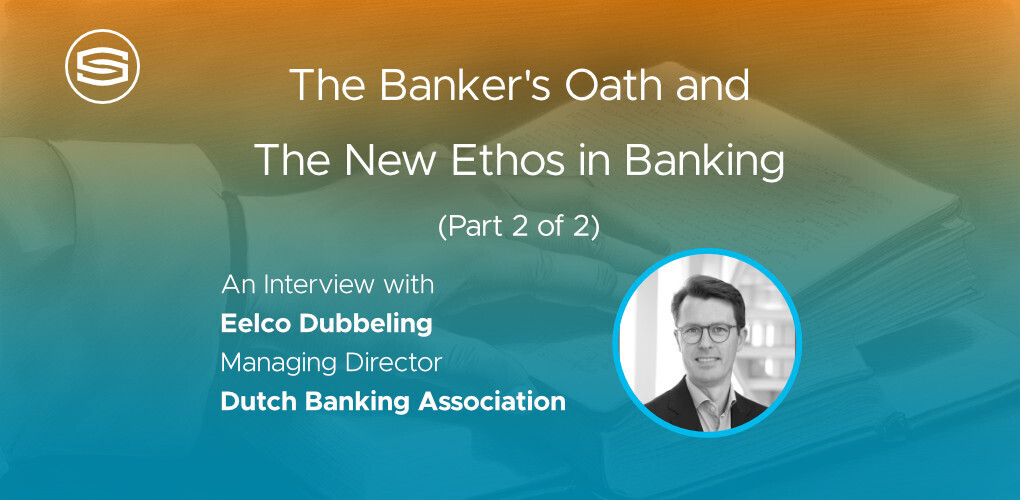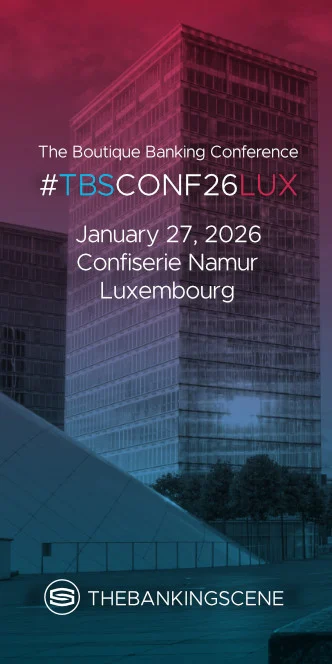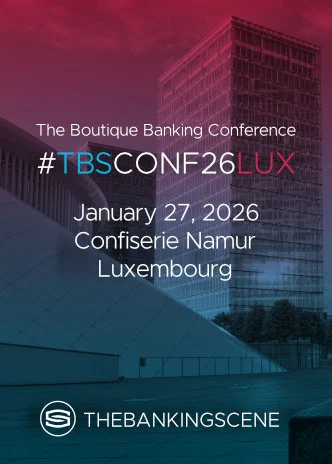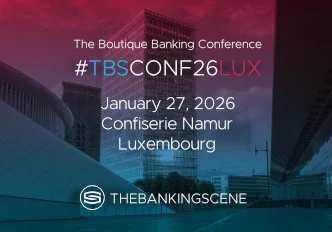
Insights & Opinions
The Banker's Oath and The New Ethos in Banking (part 2 of 2)
Thu, 21 Mar 2024


We ended the first part of the interview with the importance of banks to build a good understanding about the wishes, desires and needs of their stakeholders, including their clients. Banks need to be “Mirrors of Society” so to say.
That is, of course, an approach that requires an explicit emphasis on diversity in the workforce and leadership.
Absolutely. Originally, products and services were mainly made for white male customers between 30 and 60, luckily, today, we understand we need to serve everyone. To do that well, banks must take diversity at heart. Obviously, this gets a lot more attention today.
I think in the 80s and 90s, but also after the turn of the century, banks were run by white males from a certain part of society, with a lack of diversity in the boardroom. The risk of groupthink is enormous, and luckily, the industry responded. It got a lot of attention within boardrooms and also amongst supervisors, both the non-executive supervisors in banks and the external supervisors.
Although I believe there's still work to do there, banks and their supervisory boards are aware of the importance of diversity and act to it as well.
I read a study by Respublika on the UK financial services industry that one of the reasons the banking industry went down that far 20 years ago, is likely lack of diversity in the sector. And, of course, it was also driven by the sentiment of the time, in the 90s, when many alternative business models were transformed into common shareholder models. It led to a wave of mergers to gain economies of scale because that was said to be the right thing to do. Other consequences were reduced competition, and many providers offering the same service and products. How do you look at that point of view or conclusion?
I believe there is a strong connection between the diversity of business models and the internal culture of banks. If everyone is geared towards a universal consolidated bank, it does not show a broad or diverse range of business models, which can lead to a lack of innovative thinking. However, there are examples of banks like Triodos that have entered the market and sparked new discussions, which shows 20 years ago, we already started to see a counter movement.
This has become more mainstream, with new and innovative ideas emerging on how to contribute to the green transition and facilitate positive change in the world. However, as we look ahead, it's clear that strict regulations are limiting the scope for innovation and creativity. As a bank manager, a significant portion of the job involves complying with rules rather than spending time on your customers, which can be frustrating.
It's interesting that you mention this, as it pops up in many discussions I have with industry leaders. Last week, the CEO of Beobank shared the same issue in the context of building sustainable products in a way that they are accessible to all. People that need to do most in terms of renovations are often the ones that suffer most in terms of financial stress and only look short term. Beobank now tries to build a product with a long term impact that is cost neutral on the short term. Also there, you see that there's so much regulation, it's very hard to be creative in terms of lending products, etc.
If you have a diverse palette of clients, and you wish to build tailor made products, within boundaries, obviously, that has practically been made impossible. We need to strike the right balance again.
To conclude, learnings of the crisis were not only about setting up the banker's oath; it was much more about putting the right checks and balances in place and having your risk management in order, as well as better supervision and in the end primarily about fostering a different culture.
The flipside is that too much regulation limits banks in their manoeuvring space when building new products and services. Innovation is key in an era of digitalization, this includes attention to privacy and other safeguards, of course. Checks and balances must always be in place. The question is, how much risk may a bank take? There is no such thing as a risk-free society.
In my book, I will explain that for a new narrative, there needs to be a balance in the rhetorical triangle. One aspect is ethos. But there are also logos and pathos. Pathos refers to the emotional connection with the audience, in the case of a bank, the customer, and the impression that in the far past, customers had a relationship with a financial advisor, sometimes for many years or the rest of their lives. They trusted that person.
They may not have trusted the institution that this person represented. But they did trust the person with digitalisation, which obviously created a lot of advantages. Banks were omnipresent, sometimes multiple contacts with the clients a day.
Yet the emotional personal distance between a financial institution and the client never seemed bigger. In my opinion, the challenge of digital transformation today and tomorrow will be to include more empathy in the digital journey of customers. What's your take on that?
The digital revolution has brought a lot of value to our lives, especially when it comes to banking. Nowadays, we can access our bank accounts from our mobile devices, and even receive predictions about our expenses and revenues. This gives us a sense of security and control over our financial lives. However, this also means that the traditional role of a banker has changed, and we may not have the same personal relationship with our bank as we used to.
The Netherlands are leading the way in terms of promoting digital inclusion and adoption. Many people are embracing the efficiency and convenience of online banking, which has resulted in high satisfaction rates for digital banking services. Most customers are comfortable using a banking app for their day-to-day transactions, and only require human interaction for major life events, such as applying for a mortgage when they buy a house. Video conferencing and online communication platforms are often preferred for these interactions.
Most customers will be happier to frequent their dentist than a bank physically. However, there are certain groups of people who are unable to access digital services and therefore run the risk to be left behind. It's crucial to understand that these individuals are not solely limited to the elderly.
We need to put effort and energy into caring for everyone, including those who may struggle with using digital services. One of the initiatives we are currently supporting is a pilot program with libraries and other frequently visited public locations in the Netherlands, making it easier for people to get support in using digital services. Libraries are a familiar and accessible place where people can get help.
So indeed, the way we build a trust relationship with our bank changed. Therefore, we have placed digital inclusion high on our agenda and aim to build trust with our customers in a new way. We do not want to leave anyone behind during the digital transition, which unfortunately happens more often than we think. This issue, by the way, does not only apply to banks, but to other industries as well.
Financial inclusion is not always compatible with profitability of banks. A common critique is that banks often favour the ones that are best off, despite the importance of access to financial services. Luckily this is less of a problem in The Netherlands, Belgium and other Western European countries. Yet, I like to ask how you look at this critique?
Society is constantly changing, becoming more individualistic and expecting individuals to take more responsibility for their own well-being. However, society does not always provide the necessary resources to facilitate this. I like to call it wealth management for the many. I believe that wealth management should be accessible to everyone, not just the wealthy. We must take care of ourselves and secure a bright financial future, and there are tools available for us to achieve this. The challenge is knowing where to find them.
That's why I gave the example before of the bank app that already predicts your expenses. Digitalization has democratized wealth management, making it accessible to everyone. However, this also comes with risks, as there are various products and services available online, including Bitcoin and financial influencers, that can be confusing and overwhelming. This is why it's important to prioritise financial education and help people navigate through the many options available to them. This gets way more attention in schools. It's our responsibility to make wealth management and banking at large accessible to everyone, regardless of their financial status.
Financial education is a crucial topic that needs to be addressed in growing the bank’s pathos with its clients. In the Netherlands, we have the Money Week where we collaborate with pension funds and insurers. During this week and throughout the year a community of 4.000 bankers visit schools to teach financial education. This is where it all begins: if we can assist individuals during their formative years and incorporate financial education in their education, they can learn how to manage their finances, which reduces the risk of being excluded.
It also relates to designing products and services that cater to diverse needs and people across different generations. Each generation has grown up differently, has unique needs, and varying perspectives. Personally, I have always been focused on building a career, working hard, but I see that the generations after me prefer different jobs and locations. This gives rise to a different financial household and a non-traditional way of running households. To cater to these changes, banks must adapt accordingly.
Could you please clarify how banks can reconcile the competing demands of government regulations around Know Your Customer (KYC), Know Your Transaction (KYT), and anti-money laundering (AML), while also ensuring that they remain accessible for all people and organisations, even in rare cases where these demands conflict with each other?
That is an important dilemma today. Who needs to be the gatekeeper? We are not hiding from our responsibility, and we take this task very seriously.
Organised Crime has gone up, and it undermines our society. This is a problem that is not only found in our country but also globally, and particularly in the Netherlands due to our large harbour and open economy, as well as in Antwerp, Belgium, where you come from. Therefore, we must make a significant effort to fight against crime and prevent criminals from infiltrating our systems.
But at the same time, we have a system where there is an enormous amount of data to check and verify, but the results are often inadequate, a very large haystack and we try to check all the needles. Due to the way the system is set up and the lack of resources on the public side, the output is too low.
Therefore, we need to adopt a more risk-based approach. We should collaborate more closely with authorities to understand the risks they identify and incorporate them into our systems. This will ultimately reduce the burden on our clients. However, this is a complex and time-consuming task that will require at least two to three years of dedicated effort.
Fighting crime is something we take very seriously and that requires a team effort with all stakeholders to be truly successful and effective.
One last question is on trust. RepTrak indicated an upward trend for the Dutch banking industry. What are the key learnings of that? Is it a proof that banks are effectively rewriting their narrative?
That's a great question. Banks are making a concerted effort to change the way people perceive them. We have seen that the figures in RepTrak ratings for the banking sector have consistently improved. This is because people highly value and appreciate the quality of products and services offered by banks. For banks, like many other companies, the products and services you offer to clients are of utmost importance. If your products are good and clients are happy, you'll have a good reputation.
And at the same time, we also see that reputation is very much incident driven. If there are incidents you will get dents in your reputation, we often see that these are very much connected to the economic situation. So, if there's an economic downturn, reputation will usually go down.
I have several concerns regarding the current political narrative, particularly on how it portrays the financial sector and large companies. Some politicians have been labelling bigger companies as harmful to society, but I strongly believe that small and medium-sized enterprises are the backbone of our economy. However, as an open economy, we also need larger companies to invest in our economy and society, especially in a fast-changing world. It would be a pity to ignore the benefits that these larger companies, and the financial industry, bring to our country. And I am a strong believer in Europe. In a global society, me must strive towards a strong, united, autonomous European Union. Banks have a role towards all participants in the economy and a responsibility to many stakeholders in society. We have done that for many decades and even centuries. And we will continue to do that. It is not always easy and maybe not everything will go as planned. But as I discussed, there are more and more (young) people that do it with their heart. And this will pay off. Stakeholders appreciate and value this, as we can see in our reputation.



